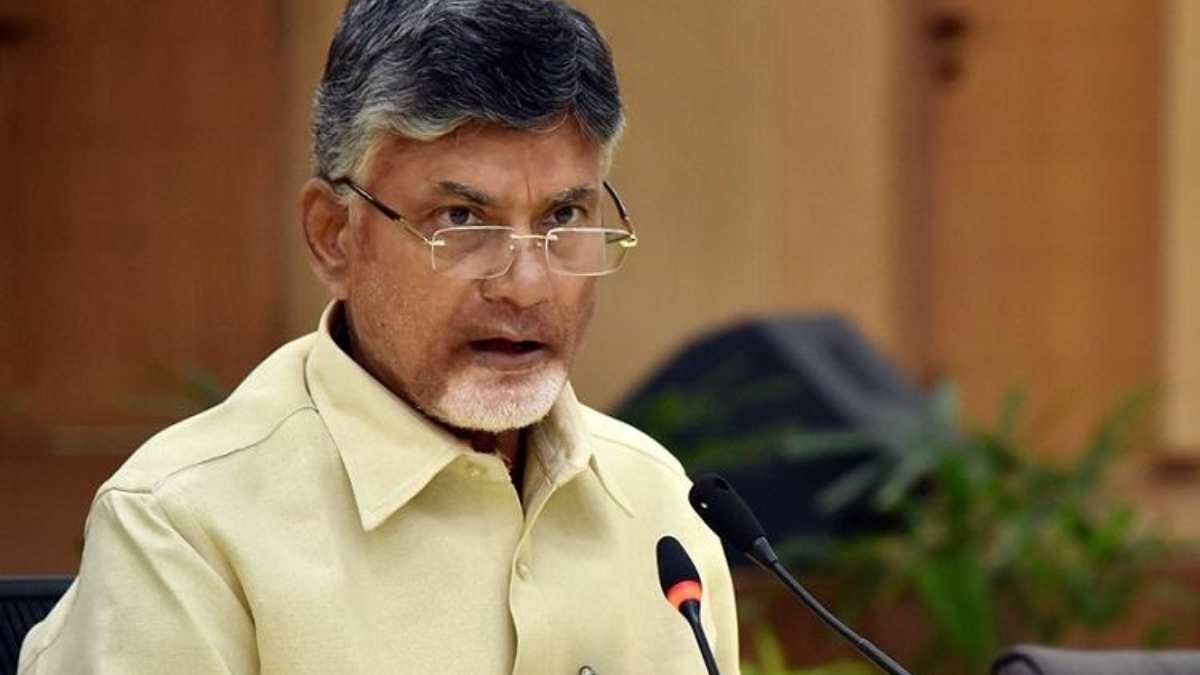Naidu Calls for Families to Have More Children Amidst Concerns Over Ageing Population
Chandrababu Naidu, the Chief Minister of Andhra Pradesh, has reignited the population growth debate by urging citizens to have at least two children. His remarks come against the backdrop of the state's concerns about a declining birth rate and a growing elderly population, which he emphasized could lead to significant socio-economic challenges if left unaddressed. During a public gathering aimed at addressing state development issues, Naidu highlighted that Andhra Pradesh, much like several regions in the world, was facing an ageing population crisis that could strain the workforce and the economy in the long term.
The chief minister’s statement pointed to the broader global demographic trends, particularly in developed countries like Japan and China, which have been grappling with shrinking populations due to low birth rates. Naidu’s message focused on the need for younger generations to take responsibility and start families to ensure future economic stability. He warned that the current trend, where fewer families are choosing to have children, could lead to irreversible damage to the demographic balance, potentially mirroring the situation in nations where ageing populations have outpaced the younger workforce.
In his address, Naidu stressed that economic growth is intimately tied to demographic health. While the state of Andhra Pradesh has enjoyed growth in various sectors, from agriculture to technology, the declining birth rate, he argued, could undermine the state's long-term developmental goals. He alluded to several international examples, including Europe's struggle with its ageing workforce and the challenges faced by China's one-child policy, which have prompted many countries to reevaluate their approaches to population control and family planning policies.
The chief minister's comments were particularly aimed at the younger generation, many of whom, he noted, are delaying marriage and opting not to have children. Citing this as a worrying trend, Naidu called for a renewed focus on family life, encouraging couples to have at least two children to maintain the state’s demographic and economic equilibrium. He went on to compare India’s situation with global trends, particularly in Europe and East Asia, where populations are ageing rapidly, leading to economic stagnation in some regions.
In making this case, Naidu also tied his remarks to the broader socio-economic challenges that ageing populations pose. The strain on healthcare systems, pension funds, and social security nets has been documented in countries experiencing similar demographic shifts. Naidu suggested that Andhra Pradesh could potentially avoid these pitfalls by encouraging population growth now. While his comments align with a global conversation on the balance between population growth and economic sustainability, they also underscore a unique challenge for the state in navigating development amidst evolving demographic dynamics.
Naidu’s focus on the demographic issue is timely, given that India as a whole is transitioning from a high fertility society to one where smaller family units are becoming the norm. The latest national demographic statistics show a decline in birth rates across most states, particularly those with higher levels of education and economic development, such as Andhra Pradesh. In fact, the chief minister’s appeal follows a broader national discourse on population control, yet deviates from the federal government’s long-standing policies, which have largely focused on curbing population growth. Naidu’s remarks signal a potential shift in regional strategies toward promoting sustainable family growth to secure future economic development.
Critics of Naidu’s remarks, however, have pointed out that addressing population concerns through such appeals may not be enough. Economists and demographers have argued that population growth should be supported by policies that provide financial incentives, affordable healthcare, education, and robust social services to families. Without these systemic changes, merely encouraging more children may not yield the desired outcomes, they contend. Nonetheless, Naidu’s remarks have reignited the population debate in India, where policymakers have been grappling with balancing population growth with economic and environmental sustainability.
This discussion also reflects larger national concerns about India's demographic future. As India is poised to become the most populous country in the world, questions about the long-term sustainability of its growth, resource management, and socio-economic balance remain at the forefront of policy discussions. While the country's population growth has been celebrated in the context of its youthful workforce and potential economic dividend, the decline in fertility rates is beginning to shift these narratives, especially at the state level.
As Andhra Pradesh navigates these demographic challenges, Naidu’s focus on family growth as a developmental strategy highlights the complex interplay between population trends and economic stability. His call to action seeks to prevent a demographic collapse that could threaten the state’s long-term prospects. Whether this appeal will result in a tangible shift in family planning choices remains to be seen, but it certainly underscores the importance of proactive policymaking in anticipating and addressing demographic challenges.

